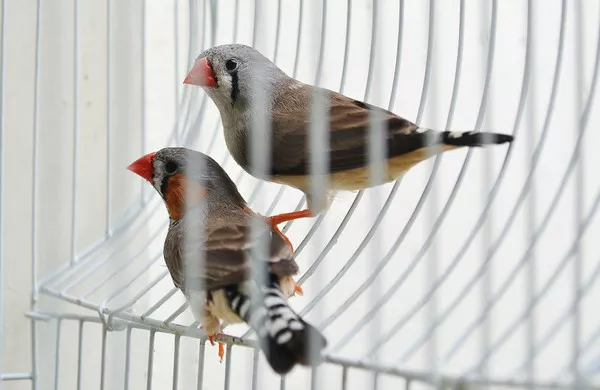American Shorthair cats are one of the most beloved and popular cat breeds in the world. Known for their sweet, affectionate nature and their playful yet independent personalities, they have captured the hearts of cat lovers everywhere. However, one question that frequently arises among potential cat owners is about their vocalization habits—specifically, “Do American Shorthair cats meow a lot?” Understanding a cat’s vocal behavior can be crucial for determining if a breed is right for your lifestyle and living situation. This article will explore the vocal tendencies of American Shorthair cats, including their reasons for meowing, when they might meow, and what to expect from them in terms of communication.
Understanding American Shorthair Cats
Before diving into the specifics of their meowing habits, it’s helpful to first understand the characteristics and temperament of the American Shorthair cat. The American Shorthair is a breed that is well-known for its balanced and gentle nature. These cats are typically medium to large in size, with round faces, large, expressive eyes, and short, dense coats. They come in a variety of colors and patterns, including the traditional tabby, which is perhaps the most recognized form.
American Shorthair cats are often described as “easy-going” and “affectionate.” They enjoy spending time with their owners but are not overly demanding of attention. Unlike some other breeds, they are known for their independent streak and ability to entertain themselves when left alone. This independence often means they are not as vocal as other breeds, which makes them a popular choice for people living in apartments or for those who appreciate a quieter home environment.
Do American Shorthair Cats Meow a Lot?
In comparison to some other breeds, American Shorthairs are not particularly known for being vocal. They are not typically “talkative” cats, and you will not find them meowing constantly like, say, a Siamese or a Burmese cat. However, this doesn’t mean that they are completely silent. Just like any other cat, they will meow to communicate their needs, but the frequency and intensity of their meowing are generally much lower.
Let’s break down the factors that influence an American Shorthair’s vocalization patterns:
1. Personality and Temperament
The American Shorthair is a breed known for being quite independent and calm. They are not typically attention-seeking cats, which means they do not often feel the need to meow loudly to get your attention. Most American Shorthairs are content with a few pets or a lap to curl up on, and they are not the type of cat that will constantly demand interaction.
That said, each cat is an individual, and some American Shorthairs may be more vocal than others. Factors such as genetics, early socialization, and experiences in their home environment can all impact a cat’s meowing behavior. Some might enjoy chatting with their owners from time to time, while others are more reserved and silent.
2. Communication Needs
All cats meow to communicate. While American Shorthairs are generally quieter than other breeds, they will meow when they have something important to say. A cat might meow when it’s hungry, thirsty, or wants to go outside. They may also meow to express discomfort, boredom, or a desire for companionship.
For American Shorthairs, meowing is typically reserved for situations where they need something or when they want to express a feeling. If your cat meows at you, it could be a signal that they want food, attention, or simply to be near you. As independent as they are, they still enjoy interacting with their human companions.
3. Breed Traits
Unlike more vocal breeds like Siamese cats or Oriental Shorthairs, American Shorthairs tend to have a more quiet demeanor. Their vocalizations are typically soft and gentle, rather than loud or demanding. The breed’s relaxed and low-maintenance nature means they are more likely to express themselves in other ways, such as through body language or simply sitting near you.
American Shorthairs have a distinctive, calm temperament, and this extends to how they communicate. They are not inclined to “chat” for the sake of it, as some more energetic breeds might be. They prefer to conserve their energy and avoid excessive noise unless necessary.
4. Age and Health Considerations
Just like with humans, a cat’s age and health status can affect how often it meows. Kittens, for example, are more likely to meow frequently, especially when they are hungry or seeking attention from their mother or their human caregivers. As cats grow older, they often become less vocal and more independent.
In terms of health, if an American Shorthair starts meowing more than usual, it could be a sign of an underlying issue. Conditions like arthritis, dental pain, or other health problems may cause a cat to vocalize more as they try to communicate their discomfort. Always be aware of any sudden changes in your cat’s behavior or vocalizations and consult a veterinarian if necessary.
Reasons American Shorthair Cats Meow
American Shorthair cats meow for a variety of reasons, much like any other cat. Below are some of the most common triggers for their vocalizations:
1. Hunger or Thirst
The most common reason a cat will meow is because they are hungry or thirsty. American Shorthairs, like most cats, are known to be food-driven. If they are meowing around mealtime, it is likely a sign that they are ready to eat. Be sure to establish a feeding routine so your cat knows when to expect their meals. Over time, they may learn to associate specific sounds, like the opening of a can, with food and meow to get your attention.
2. Desire for Attention
While American Shorthairs are more independent than other breeds, they still enjoy spending time with their human companions. If your cat is meowing, it could be their way of asking for some attention or affection. A quick pet or a bit of playtime might be enough to satisfy them. If they want to be near you, they might vocalize to express that desire.
3. Boredom
Although American Shorthairs are independent, they still need stimulation and mental engagement. If left alone for too long, they may start meowing out of boredom or frustration. It’s essential to provide toys, scratching posts, and other sources of enrichment to keep your cat entertained. A bored cat might meow to express their dissatisfaction with being left to entertain themselves.
4. Discomfort or Illness
A sudden increase in meowing can sometimes signal discomfort or illness. If your American Shorthair starts meowing excessively, particularly in the middle of the night or during periods of rest, it could indicate something is wrong. Cats can’t verbally express pain, so meowing becomes one of their primary ways to communicate discomfort. If your cat’s meowing is accompanied by other signs of distress, such as lethargy, changes in appetite, or vomiting, it is important to seek veterinary advice.
5. Wanting to Go Outside
Some American Shorthairs enjoy going outside, especially if they have been raised in a home with outdoor access. If your cat is meowing near an exit or window, they might be trying to tell you that they want to explore the great outdoors. Be sure to assess the safety of letting your cat outside, and provide a safe, enclosed area if you choose to allow them outside.
6. Disorientation or Anxiety
Changes in routine, moving to a new home, or the introduction of new pets or people into the household can lead to anxiety in any cat, including American Shorthairs. If your cat is feeling stressed or disoriented, they may vocalize more than usual. In these cases, patience and reassurance are key. Providing a quiet space and familiar objects can help your cat adjust to the change.
How to Manage Excessive Meowing
If you notice that your American Shorthair is meowing more than usual, it is important to understand the reason behind their behavior. Here are a few tips on how to manage excessive meowing:
Provide Regular Meals – Ensure that your cat’s feeding schedule is consistent. This will help reduce meowing related to hunger.
Provide Plenty of Enrichment – Give your cat access to toys, climbing structures, and interactive play. Keeping their mind and body active will help alleviate boredom-related meowing.
Spend Quality Time Together – Even though American Shorthairs are independent, they still value companionship. Spend time petting or playing with them to satisfy their social needs.
Check for Health Issues – If the meowing seems unusual or excessive, check for signs of illness or discomfort. A trip to the vet may be necessary to rule out any medical concerns.
Be Patient and Understanding – Cats meow for a variety of reasons, and each one is an attempt to communicate something important. Respond to their needs with patience and love.
Conclusion
In summary, American Shorthair cats are generally quiet and not known for meowing excessively. Their independent nature means that they don’t typically meow for attention unless they need something important. They will, however, meow to communicate their needs, such as hunger, thirst, discomfort, or a desire for affection. As with any breed, each American Shorthair is unique, and some may be more vocal than others.
If you are considering adopting an American Shorthair, it’s important to remember that their meowing is typically low-key and reserved for specific purposes. Their sweet and affectionate temperament makes them wonderful companions for individuals or families who appreciate a calm and relatively quiet cat. If your American Shorthair meows more than expected, always assess the cause and respond appropriately. With the right care and attention, your American Shorthair will continue to be a loving and joyful member of your family.
Related Topics:























